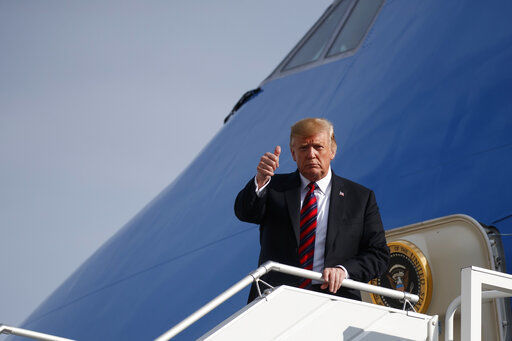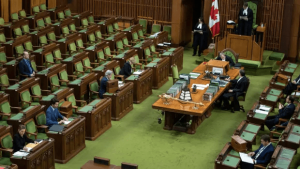
By removing the metals tariffs on Canada and Mexico, Trump cleared a key roadblock to a North American trade pact his team negotiated last year. As part of the May 17 arrangement, the Canadians and Mexicans agreed to scrap retaliatory tariffs they had imposed on U.S. goods.
“I’m pleased to announce that we’ve just reached an agreement with Canada and Mexico, and we’ll be selling our product into those countries without the imposition of tariffs, or major tariffs,” Trump said in a speech to the National Association of Realtors.
The American Dairy Coalition commended the efforts of Trump and U.S. Trade Representative Robert Lighthizer for ending the retaliatory tariffs, which came during a time when the industry was already struggling with low milk prices and a lack of workforce.
Edge Dairy Farmer Cooperative, one of the largest dairy co-ops in the country, also welcomed an end to the tariffs on Canada and Mexico.
“This is certainly good news for our dairy farmers and processors. Ending these tariffs will remove a roadblock to free and fair trade with two important buyers, particularly Mexico, which is by far the biggest buyer of our dairy products,” said Brody Stapel, president of Edge and a dairy farmer from eastern Wisconsin. “We hope this also signals that the proposed USMCA trade pact between the countries will get the full support of Congress. That deal is critical to the long-term success of the U.S. dairy community, so we cannot stress enough the importance of our lawmakers in both parties getting behind USMCA as soon as possible.”
In a joint statement, the U.S. and Canada said they would work to prevent cheap imports of steel and aluminum from entering North America. The provision appeared to target China, which has long been accused of flooding world markets with subsidized metal, driving down world prices and hurting U.S. producers. The countries could also reimpose the tariffs if they faced a “surge” in steel or aluminum imports.
In Washington, some were urging Trump to take advantage of the truce with U.S. allies to get even tougher with China.
“China is our adversary,” said Sen. Ben Sasse, R-Neb. “Canada and Mexico are our friends. The president is right to increase pressure on China for their espionage, their theft of intellectual property, and their hostility toward the rule of law. The president is also right to be de-escalating tension with our North American allies.”
In imposing the metals tariffs and threatening the ones on autos, the president was relying on a rarely used weapon in the U.S. trade war arsenal — Section 232 of the Trade Expansion Act of 1962 — which lets the president impose tariffs on imports if the Commerce Department deems them a threat to national security.
But the steel and aluminum tariffs were also designed to coerce Canada and Mexico into agreeing to a rewrite of the North American free trade pact. In fact, the Canadians and Mexicans did go along last year with a revamped regional trade deal that was to Trump’s liking. But the administration had refused to lift the taxes on their metals coming into the United States until Friday, May 17.
The new trade deal — the U.S.-Mexico-Canada Agreement — needs approval from legislatures in the U.S., Canada and Mexico. Several key U.S. lawmakers were threatening to reject the pact unless the tariffs were removed. And Canada had suggested it wouldn’t ratify any deal with tariffs still in place.
Canadian Prime Minister Justin Trudeau credited his government for holding out to get the tariffs removed.
“We stayed strong,” he said. “That’s what workers asked for. These tariffs didn’t make sense around national security. They were hurting Canadian consumers, Canadian workers and American consumers and American workers.”























